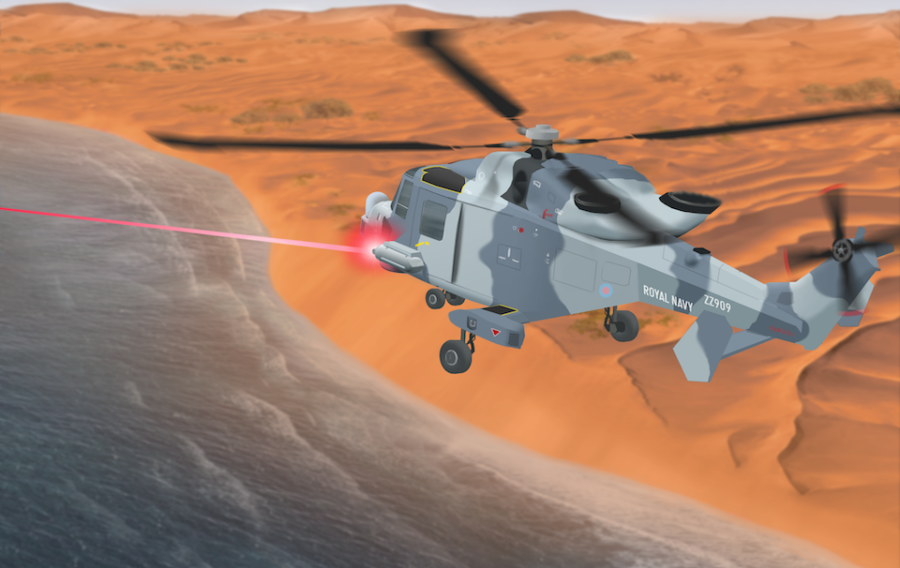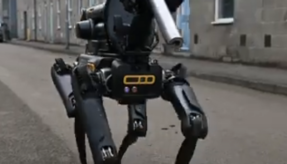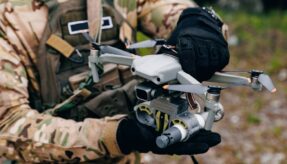
The MOD is developing laser technology that is powered purely by electricity and does not require ammunition.
Direct Energy Weapons (DEW) use laser technology that can utilise power from a vehicle’s engine or generator. This reduces running costs and increases flexibility.
The weapons use high energy light beams to destroy enemy drones and missiles. The MOD is also researching Radio Frequency weapons that can disrupt enemy electronics and computer systems.
Penny Mordaunt, Defence Secretary, said: “Laser and Radio Frequency technologies have the potential to revolutionise the battlefield by offering powerful and cost-effective weapons systems to our Armed Forces.”
“This significant investment demonstrates our commitment to ensuring our Armed Forces operate at the forefront of military technology.”
The new systems are expected to be trialled in 2023 on Royal Navy ships and Army vehicles but, once developed, both technologies could be operated by all three services. The Armed Forces will use these exercises to get a better understanding of DEW, test the systems to their limits and assess how they could be integrated with existing platforms.
The MOD aims to invest up to £130m in this package of Directed Energy Weapons, including the construction of the demonstrators, the creation of a new Joint Programme Office and the recruitment of personnel to manage the programme. The MOD already has plans for initial trials of laser weapons systems, with the Dragonfire demonstrator commissioned by the Defence Science and Technology Laboratory to be tested later this year.
The Dragonfire represents a world-first in laser weapons technology, combining multiple laser beams to produce a weapons system that is more powerful than its predecessors and resistant to the most challenging environmental conditions. The MOD recently announced in a Prior Information Notice (PIN) its plan to create three new DEW demonstrations to assess its potential as a future innovation to improve the performance of combat vehicles.
If you would like to join our community and read more articles like this then please click here.
Defence Funding Dstl Innovation laser MOD Penny Mordaunt Research








